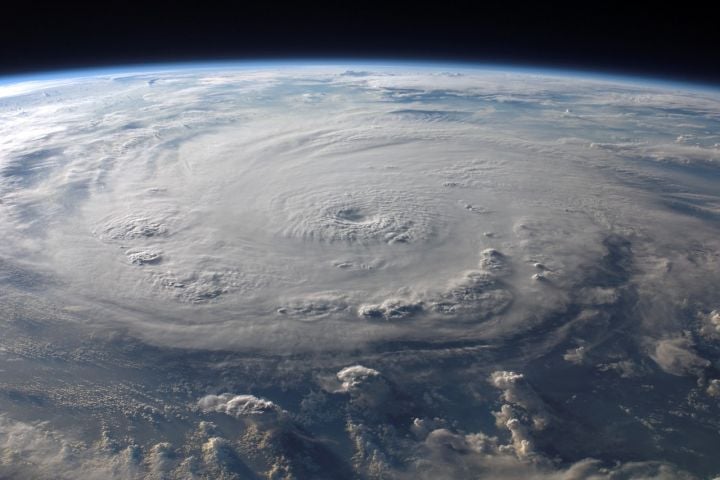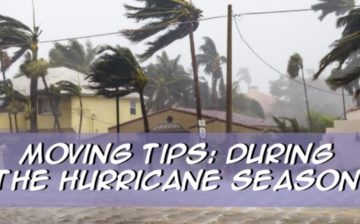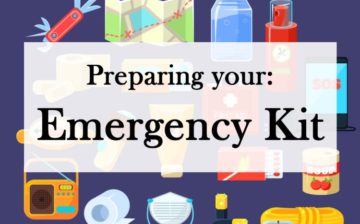
Moving anywhere has its risks, but putting down roots in a floodplain means you’ll have a few more things on your emergency preparedness checklist. While living potentially closer to the coast has its benefits, it also has severe storms you should be prepared for.
Knowing the devastation a powerful hurricane can cause, it’s important to do your research. To best protect your family’s lives, as well as the brand-new home you bought, you should understand the risks and how best to mitigate them.
1. Watch the Weather
Watch weather channels at all times, or tune your radio to a station giving you live coverage of the most important news. Your local station will be the best place to keep up with the current situation and inform you of your next move.
You should learn weather basics when you live in an area affected by hurricanes. Understanding the difference between a watch and a warning is crucial to steer your household in the right direction.
A watch signifies that a hurricane is possible in the current conditions, while a warning means experts expect a storm to come through the area. Warnings are typically posted about 36 hours in advance, giving you ample time to prepare.
2. Prepare Your Home
One of the most well-known precautions you can take to safeguard your home is to board up your windows from the outside. This ensures the glass is protected and won’t pose a shattering risk to your family.
Additionally, you should remove any lawn ornaments decorating your yard so you can keep them safe during the storm. If you see any downed power lines while moving things around, consider preemptively switching your power off.
While you survey your property, note anything that stands out as a problem that needs to be fixed. This way, after the storm, you can reassess your home to see if anything has changed. For example, spotting changes in your roofing and learning how different weather affects your home can help avoid scams hurricane victims often fall prey to.
3. Create an Emergency Plan
You should prepare your car in advance in case you have to evacuate. Make sure it’s ready for a long journey, and fill up on gas. You may also want to fill the trunk with your belongings, too. Plan a route out of the hurricane zone beforehand so you’re not winging it and taking a chance with dangerous winds.
If you plan to hunker down and wait out the storm, ensure you have plenty of usable water. You can buy bottled water at the store and fill up containers with clean water, such as bathtubs or jugs. Be sure to get plenty of canned and nonperishable food, too, as you aren’t guaranteed to be able to cook.
Whether you’re staying or leaving, you should have flashlights with backup batteries and keep valuable items, like jewelry or necessary medicines, in a place where you can easily access them in case you change your mind.
If you’re afraid of what could happen to your house in a hurricane, it might be a good idea to look into flood insurance. Many residential areas require that homeowners have flood insurance, particularly if they’re on the floodplain.
4. Reach Out to Your Community
People who have experienced hurricane seasons for years would be happy to give you more insight on what to expect and when to be concerned. Your community should jump at the chance to make your first hurricane season go by smoothly. If you feel like you can’t trust your judgment, rely on the expertise of others.
Similarly, you can extend help to people in your community who may need it. You can also prepare a hurricane emergency kit for your family and neighbors. If you know a senior citizen or someone who doesn’t have loved ones nearby, you may be able to help them secure shelter or provide goods during an uncertain time.
5. Know When to Evacuate The Hurricane Zone
Before you evacuate, you should plan where you’re going to stay. Make a hotel reservation or make arrangements with a relative — just be sure you know where you’re going before leaving.
When you do head out, you should avoid flooded areas and stick to the paths that emergency workers have marked for you, even if you think another route might be shorter or is one you planned for.
Stay current on your local news. You might be safer at home than evacuating. You’ll also be one of the first to know whether leaving is a good idea so that your household can potentially get to safety earlier.
If you choose to leave, don’t forget to bring protective items, like masks and hand sanitizers — especially if you’re going somewhere crowded. Keep yourself safe in all areas of your life, and you’ll be able to go back to normal before you know it.
Moving to a Hurricane Zone
Preparing for a hurricane can be scary, particularly if you’ve never done it before.
With practice, you’ll grow more confident in your abilities to prepare for severe weather.
While you should take every precaution to avoid the worst of a hurricane and its aftermath, it’s OK to rely on the help of others. Take care of yourself and your household first.
We hope you found this blog post informative. Be sure to check out our post Benefits of Installing Storm Protection Doors for more great tips!
Have Experience in the Moving Industry? Want an Additional Income Stream? Work With All Around Moving!
Partner with us, All Around Moving Services and we’ll help you profit. Click here to learn more.




